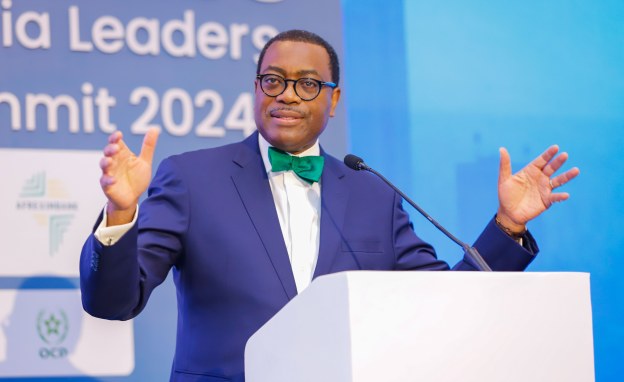The race to lead the African Development Bank (AfDB) is getting hotter as the date for the election draws near. The current president of the bank, Nigeria’s Dr. Akinwumi Adesina, will leave office on August 31, 2025, after completing his second five-year term. The election to pick his successor will hold on May 29, 2025, during the bank’s Annual General Meeting in Abidjan, Côte d’Ivoire.
Dr. Adesina, who has been in office since 2015, is known for his focus on improving Africa’s economic and social development. Under his leadership, the AfDB has supported infrastructure, agriculture, industrialization, and private sector growth across the continent. Speaking to DW (Deutsche Welle), Adesina said Africa had remained strong despite global challenges like high inflation, rising debts, currency depreciation, and the impacts of climate change. He said, “Africa continues to post very resilient growth,” and added that 11 out of the world’s 20 fastest-growing economies in 2024 were African, according to AfDB data.
Adesina, however, acknowledged that Africa still has many issues to solve. He said many countries are still struggling with the economic effects of COVID-19 and need more concessional loans—soft loans with low interest—to support their recovery. He also noted that climate change is putting extra pressure on African economies that didn’t cause the problem in the first place.
As the bank prepares for a new chapter, five candidates have stepped forward to take the mantle. Each one has shared his or her ideas on how to move the bank and the continent forward.
One of the top contenders is Amadou Hott from Senegal. He is a former Minister of Economy, Planning and Cooperation, who served from 2019 to 2022. Hott believes the bank must invest more in education and skill development to tackle youth unemployment. “We have tens of millions of young people without jobs. We must make sure the economy creates income and opportunities for them,” he said during a candidate forum in Brooklyn.
From Zambia comes Dr. Samuel Munzele Maimbo, currently a Vice President at the World Bank in charge of Budget, Performance Review, and Strategic Planning. He said his focus would be to help African governments grow their economies by giving them access to concessional finance and supporting public institutions in tough political and economic environments.
Chad’s Abbas Mahamat Tolli, an economist and former Governor of the Bank of Central African States, said he would push for more investments in renewable energy, infrastructure, and agriculture. According to him, these sectors are key for Africa’s economic independence and future growth.
Sidi Ould Tah from Mauritania, a former head of the Arab Bank for Economic Development in Africa, believes Africa needs to harness its youthful population and natural resources. He said the AfDB should help African countries add value to their raw materials, boost agriculture, and invest more in women and children.
The only woman in the race is South Africa’s Bajabulile Swazi Tshabalala. She is the former Senior Vice President of the AfDB. Tshabalala said Africa’s productivity is lagging behind other regions because of the poor state of infrastructure. She said without basics like good roads and steady electricity, it will be hard to create jobs or attract investment.
As Adesina prepares to hand over, he said the bank must continue supporting countries to adapt to climate change and manage their natural resources better. He noted that Africa needs stronger public finance systems to raise more revenue internally and reduce reliance on foreign aid.
The African Development Bank plays a big role in funding development projects across the continent. It provides loans, grants, and technical support to both governments and private firms. Whoever emerges as the new president will carry the responsibility of guiding the bank and helping African countries grow stronger economically.
